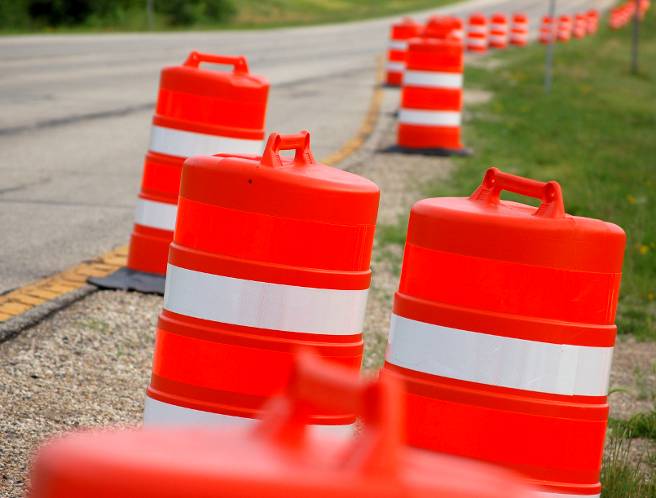Transportation Inaction Hurts State
By 2019 debt payments will have increased by 110%.
For the past seven years, Governor Walker and lawmakers have been debating (and delaying) how to best pay for Wisconsin’s transportation infrastructure. The problem has arisen as cars have become more fuel efficient, and revenue from the gas tax and registration fees has not kept up with inflation or the need to replace aging roads and bridges. According to the American Society of Civil Engineers, Wisconsin now has the third worst road conditions in the United States.
Every solution to the transportation funding problem has a cost to state taxpayers. The construction and maintenance of highways and roads have primarily been a state responsibility. In fact, planning and financing infrastructure are some of the most important responsibilities of the Governor. Quality transportation infrastructure is one of the most important investments state government can make to support economic growth.
For the past three budgets, Governor Walker and the Republican legislature have chosen to borrow more money instead of funding projects with a dedicated revenue stream. The result has led to a record level of transportation debt. By the end of this budget, debt payments will have increased 110 percent since 2010. In 2010, Wisconsin spent just 11.5 percent of its transportation revenue on debt payments. By the end of 2018-19, it is expected that almost 22 cents out of dollar of transportation revenue will be spent paying off increased debt.
But it is not just impacting transportation infrastructure. To offset his record level of transportation borrowing and still manage the state’s total debt, Governor Walker has gutted infrastructure budgets for the UW System and other state facilities. Last October, the UW Board of Regents indicated the backlog of needed repairs in the UW System has grown to an estimated cost of $2 billion. Governor Walker’s 2017-19 UW System Capital Budget proposal funds just 14 percent of the funding provided in the 2009-11 budget. Unfortunately, while the Governor has proposed a funding cut, the need to renovate, repair, or replace old facilities does not go away. And like transportation infrastructure, delaying projects increases the costs of these projects and requires additional maintenance expenses that otherwise would have been avoided.
Perhaps the biggest cost of this decision is future economic opportunity in Wisconsin. At UW-Platteville, where 58% of students graduate in science, technology, engineering and mathematics (STEM) fields, there has been a surge in enrollment growth in STEM academic programs over the past decade. In addition, 25% of engineers in Wisconsin graduate from UW-Platteville. It is no surprise that two of the biggest building project priorities for the UW Board of Regents were the renovation of their STEM building (Boebel Hall) and construction of a new engineering building. The current STEM facility lacks sufficient laboratory space and an abandoned darkroom serves as a makeshift research space. The existing engineering building was built in the 1960s and does not have enough physical space to accommodate the specialized laboratory needs of the industrial and mechanical engineering programs, limiting student access.
These essential infrastructure projects, which are key to Wisconsin’s economic future, are not moving forward because Governor Walker refuses to address Wisconsin’s transportation funding shortfall.
Refusing to address the transportation funding shortfall is the least responsible decision. It is not more responsible to borrow money and to cripple Wisconsin’s infrastructure and ability to compete in the global economy. Instead of worrying about a cheap 2018 campaign soundbite, the Governor should step up, be a leader, and actually govern our state before the problems he created get any worse.
Rep. Gordon Hintz (D-Oshkosh) represents the 54th District in the Wisconsin State Assembly and is a member of the Legislature’s budget-writing Joint Committee on Finance.
Op-Ed
-
Unlocking Milwaukee’s Potential Through Smart Zoning Reform
 Jul 5th, 2024 by Ariam Kesete
Jul 5th, 2024 by Ariam Kesete
-
We Energies’ Natural Gas Plans Are A Mistake
 Jun 28th, 2024 by John Imes
Jun 28th, 2024 by John Imes
-
Milwaukee Needs New Kind of School Board
 Jun 26th, 2024 by Jordan Morales
Jun 26th, 2024 by Jordan Morales






















Scott Walker’s motto — if you buy it, you break it.